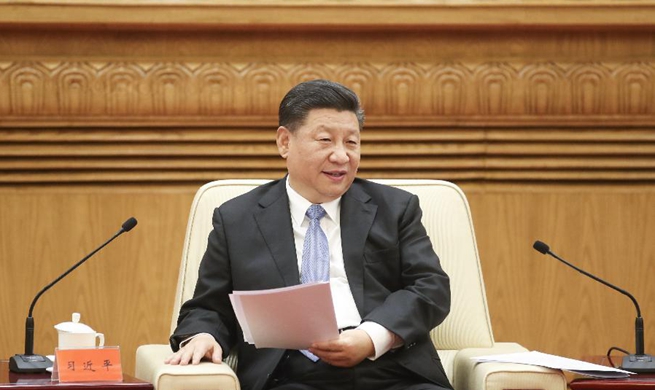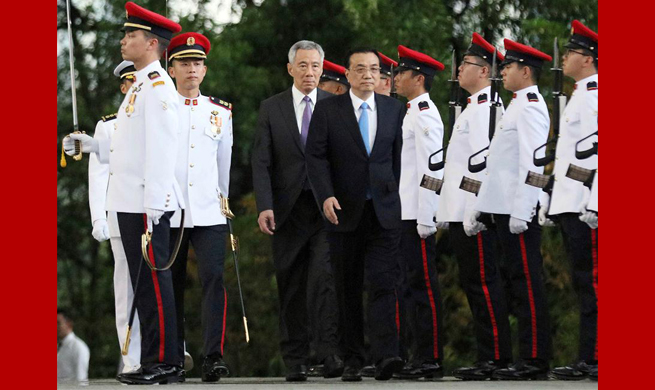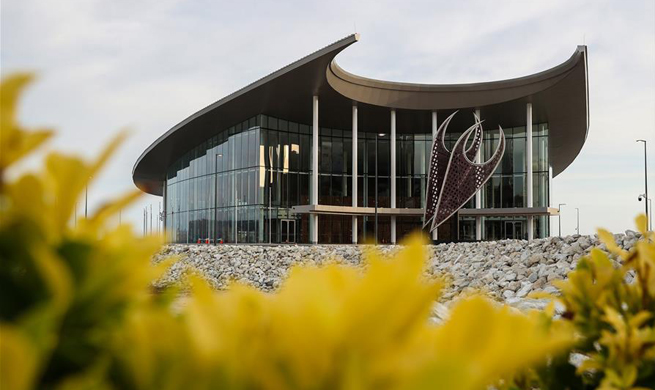LONDON, Nov. 12 (Xinhua) -- UK's former Prime Minister Gordon Brown said on Monday that the parliament should have a final vote on any Brexit deal agreed with the European Union (EU).
"It would be a travesty of democracy if there is not an open debate in the House of Commons on the deal," Brown told a briefing at the Institute for Government (IFG), an independent social policy think-tank in London.
"We have to argue... for all views to be heard, and for amendments to be heard before you have the conclusive vote and one of these amendments must be the opportunity to renegotiate the deal the government has done if people find that unsatisfactory," said Brown, who was prime minister between 2007 and 2009.
Brown backed the principle of the British parliament sending any deal agreed by Prime Minister Theresa May's government and the EU back to the EU leaders in Brussels for renegotiation if the British parliament did not vote to back it.
"There is no reason ... why you cannot go back to Brussels and say 'this is not the deal we want'," he said.
Talks between Britain and the EU over exit from the bloc are stalled, with the primary handicap being the status of the border between the British region of Northern Ireland and the Republic of Ireland, the only land border Britain has with the EU.
An influential and vocal section of May's ruling Conservative Party supports having no deal with the EU if a deal means sharing elements of sovereignty, such as control over trade deals, tariffs and borders.
Under those circumstances the so-called Hard Brexiters would support a future arrangement between Britain and the EU where trade and tariffs would be regulated under World Trade Organization (WTO) rules, known as a No Deal Brexit.
Brown said he believed that it was not necessary to accept a No Deal. "The alternative of this vote is not No Deal versus the Only Deal on the Table, it seems to me it is possible to go back and renegotiate," he noted.
Once a deal has been agreed, Brown argued, then there should be a second referendum for the British people to give their opinion on the agreement.
"I think there will be a second referendum. I believe that, in the end, the situation will have been seen to have changed since 2016 and that the people should, in the end, have the final say," said Brown.
Brown believed that the process of Brexit had been defective and flawed, as after more than two years since the Brexit referendum vote in June 2016 ,there was still no clarity over what Brexit would mean.
"Whatever the deal and whether there is a deal, the long term questions are unresolved," said Brown, citing an absence of agreement on tariffs, free movement of people, and the power to sign trade deals.
"None of the major issues are resolved. We have at best a short temporary fix instead of a long term destination, a safe harbor," he said.
"We have got a short term temporary fix if we have a deal, because the Cabinet and the government cannot agree what their long-term destination is," said Brown.
"The decision has been made not to have a decision. The process is defective," he added.













